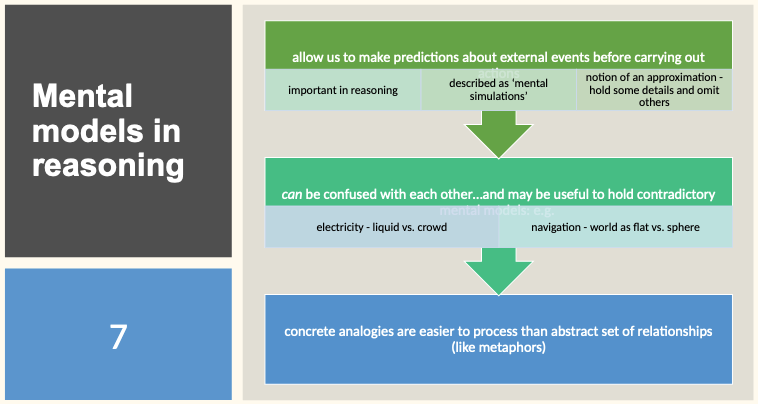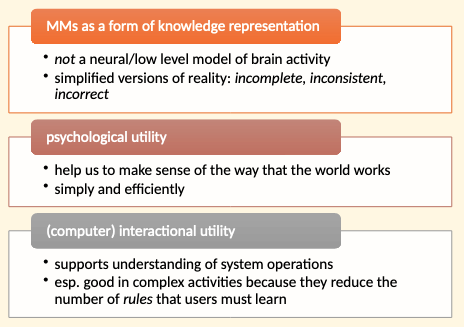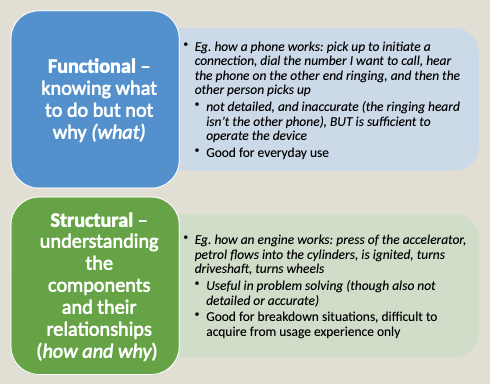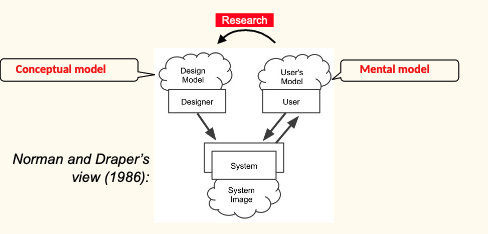Making Sense of the World
Transparent objects expose their functions, for example a bicycle.
Opaque objects however, hide their functions.
Mental Models
Models people have of themselves, others, their environment and thing with which they interact.
It is based on metaphors. For example, computer as a typewriter/personal assistant/communications centre.
Mental models are formed through:
- By the self.
- Shown by others (practical demonstration).
- Told by someone else (instruction).

Mental Models and HCI

Types of Mental Models to Consider

Mental Models in HCI
Knowledge of users’ mental models is useful in design.
Users apply them:
- To predict future events.
- To find causes of observed events.
- To determine appropriate actions to cause changes.
Designing good MMs is useful in manipulating user behaviours.
More examples here
Application of Mental Models in UE
Good models should help you use machines.
How can MMs be used in UE/HCI?
- Helps users develop effective models with appropriate representations in the interface.
- Ensure users don’t develop inappropriate MMs of devices.
Conceptual Models
Term used to describe the ways systems are designed to be understood. It should help the user “figure it out”.
A good conceptual model is a high level description of:
- The proposed system in terms of a set of integrated ideas and concepts.
- What it should do, behave and look like.
- How it should be understood by the users, as intended.

Implications for System Designers
- Choose the MM you intend the user to adopt, before designing the user interface.
- Exploit the system image (‘look and feel’) to convey the intended MM.
- Hide aspects of the system image that conflict with the activity/conceptual model.
- Link the choice of MM to the intended means of interaction.
Doing Conceptual Design
Conceptual design involves:
- Structuring information space.
- Creating of alternative solutions.
- Determining which design concept to pursue.
Tools involved in conceptual design:
- Sketching, brainstorming, card sorting, flowchart, storyboards, scenarios etc.
- Personas, use cases.